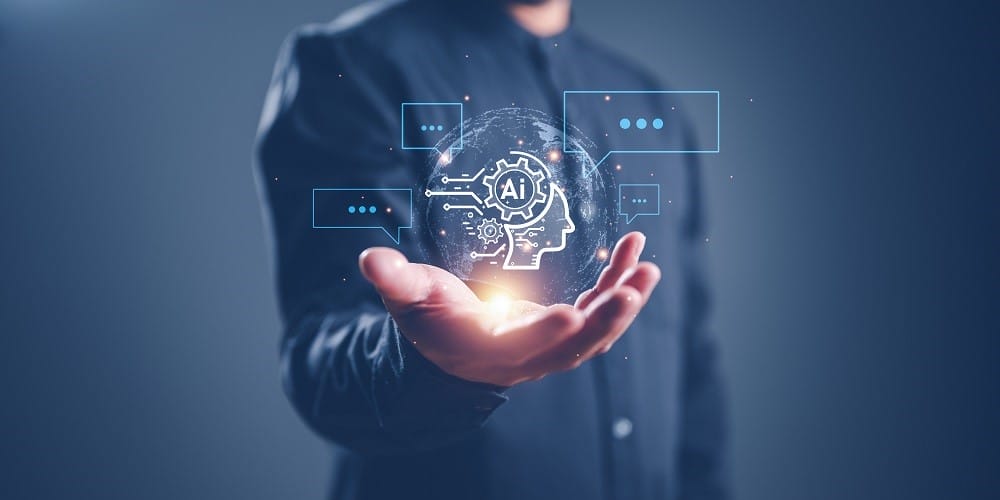
ChatGPT: Starting signal for the perfect text AI?
The biggest hype of recent times is certainly ChatGPT: the AI software can independently produce texts according to simple instructions – faster and seemingly more accurately than any artificial intelligence before. The success of OpenAI’s software is driving the software market to follow suit with its own solutions: Google and Microsoft are hastily trying to follow suit. What are the consequences of ChatGPT’s success for the way we work?
What is ChatGPT?
ChatGPT is a so-called “large language model”, i.e. an artificial intelligence that has been trained with large amounts of text. GPT is short for “Generative Pre-Trained Transformer”. The aim is to generate text that could also come from a human source on first glance. The “Large Language Models” are programmed to understand and reproduce complex nuances of human language. OpenAI’s ChatGPT, like other AIs of its kind, has been trained with billions of words – the hype has helped keep it fed.
Why is there such hype?
The hype around ChatGPT is mainly due to its speed and amazingly accurate answering of questions: Anyone who has ever struggled with the Google translator or poorly programmed search engines can roughly estimate the technical quantum leap. ChatGPT gives answers that initially appear to have been written by a human expert – in mere seconds. An important part of the hype is also that any kind of text can be output – for example, also code in programming languages. The first critics see ChatGPT and similar applications as endangering the future of programmers and other jobs.

What are the limitations of ChatGPT?
ChatGPT is good – but far from perfect. The most important point of criticism is that ChatGPT works without specifying sources. For more complex topics or in the work environment, the AI reaches its limits. The code that the programme provides is often still faulty. However, the errors are quickly corrected – so ChatGPT could become a real support for coding & co soon. The unclear data basis of the results ensures that a possible bias can only be recognised with difficulty and with one’s own research and prior knowledge. Despite being technically advanced, ChatGPT as an AI will of course always remain one thing: artificial. Creativity, empathy and emotion will always be sought in vain in the application. Data protectionists also warn of risks if the system is fed with sensitive data.
How is the business community reacting?
Microsoft invested in OpenAI early on – that could now pay off quickly: The search engine Bing, which has long been in the shadow of market leader Google, is to be upgraded with text and speech AI. The hype around ChatGPT is driving Microsoft to improve and reposition Bing and the Edge browser. Google CEO Sundar Pichai announced in a blog post that his company is launching “Bard”: The AI is said to be a chatbot that can answer complex queries quickly and with a human feel as well, not unlike ChatGPT.
What lesson can be learned from the hype around ChatGPT?
The media attention on ChatGPT and the disruptive potential of AI are not unfounded. On the other hand, artificial intelligence is already an important component of professional business software, such as Microsoft Dynamics 365, and this trend will continue to grow as the relevant software evolves. AI is not a panacea, but it can be immensely helpful as a support. On the internet, the possibilities of using Microsoft Dynamics 365 and ChatGPT together have long been discussed. So far, the systems exist in parallel environments, but the considerations give a foretaste of what an integrated solution could look like.





